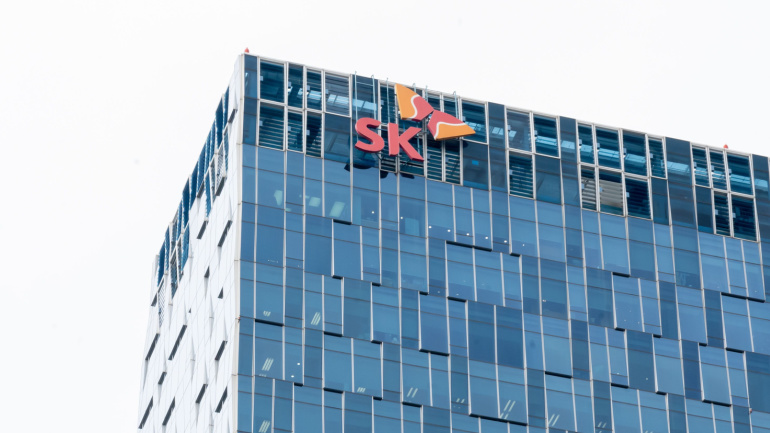The Port of Tyne, a key player in UK’s maritime infrastructure, is embarking on an exciting technological journey, partnering with Ericsson and BT to establish 4G and 5G private network connectivity. By engaging revolutionary standards in safety, efficiency, and sustainability, the Port aspires to become an exemplar among smart ports. Uniquely, the port-wide private network incorporates both 4G and 5G standalone connectivity, benefitting legacy devices while enabling cutting-edge 5G applications. This technological upgrade paves the way for futuristic applications that could revolutionize port operations while reducing carbon emissions. Learn more about this visionary initiative and its potential implications for the maritime industry.
Reliance Jio’s introduction of JioSpaceFiber, a satellite broadband service, has rocked the telecom landscape. Offering gigabit speed connectivity even in remote Indian locations, this innovation brings affordable online engagement to all. Leveraging SES’ medium Earth orbit satellites, the joint venture holds the potential to transform India’s digital reach. Yet, this ambition is not without competition.
Against a robust backdrop of escalating system complexity, cloud-native DevOps emerges as a promising tool to simplify system development. Leveraged by Internet giants and SMEs alike, it’s heralded for boosting innovation efficiency and expediting industry monetization. Yet, its implementation is not without hurdles, as highlighted by China Mobile Jiangsu’s experiences. Their collaboration with Huawei, however, turned the tide, unraveling the potential of agile delivery and intelligent O&M to drive business growth.
The White House’s recent call to Congress for increased funding of the Affordable Connectivity Program (ACP) has significantly stirred the telecommunications sector. Putting forth a request to extend the ACP’s operations, the Biden Administration aims to stretch free and discounted internet provision to eligible households until December 2024.
IBM has introduced Watsonx Code Assistant, an AI-powered tool for enterprise software development. Riga Technical University partners with IS-Wireless to advance 5G Open RAN technology. Snom’s phones are certified for NetSapiens, streamlining deployment for telecom resellers. Google Maps enhances user experience with AI-powered features, offering Immersive View, improved navigation, and EV charging information, striving to outperform competitors.
Ofcom’s revised net neutrality rules in the UK now allow broadband providers to offer tiered services based on latency, not just throughput. Furthermore, these new regulations also permit the creation of specialized services, paving the way for network slicing and multi-access edge computing in the future. On the somewhat contentious front, zero-rating, or providing unrestricted access to specific online services, gets a green light, albeit with a few conditions.
Nokia’s 25G PON solutions are boosting Google Fiber’s bold venture into establishing a 20-Gbps service, though the full potential of such capacity remains untapped. However, Google Fiber, focusing on the future, views this as a crucial step towards achieving 100-Gbps services and beyond. Yet, does the necessity of such impressive speeds linger in doubt, or are these advancements setting a thrilling precedent in the field of telecommunications?
In a bold amalgamation move, Orange and MasMovil are set to combine their Spanish telecom operations in a €19 billion deal. European regulators, however, have expressed concerns, fearing a spike in consumer costs due to a potential market monopoly. To address these apprehensions, Orange and MasMovil are shedding some assets, with Romanian telecom Digi earmarked to acquire parts of the business, paving the way for a more competitive landscape. Californian tech enthusiasts, early adopters and IT professionals are keenly observing this development, which is seen as a yardstick for regulator sentiment towards large-scale telecom consolidation in Europe.
Ooma, Inc., a leading smart communications platform for businesses and consumers, has successfully acquired 2600Hz, Inc. The acquisition, valued at approximately $33 million in cash, closed on October 20, 2023. This strategic move is set to enhance Ooma’s business solutions and expand its market reach.
SK Telecom’s collaboration with AI pioneer Mars Auto, brings forth a compelling vision for autonomous trucking, leveraging SKT’s 5G prowess and Mars Auto’s AI system. With Mars Auto’s AI armed with extensive roadway data from SKT, there’s a promise of safer, more efficient self-driving services. SKT’s continued strides in telecom, signified by the company’s alliance with Deutsche Telekom and massive investment in AI firm Anthropic, show signs of transformative potential for the telecom sector.













